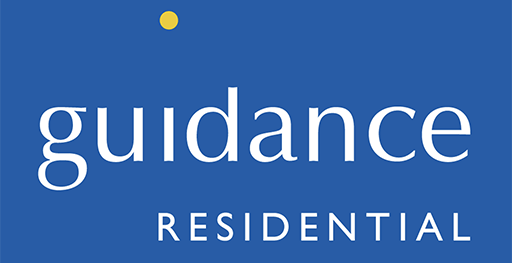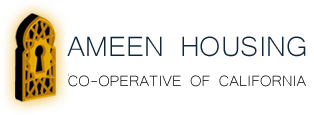Find the best faith based home financing options


UIF Corporation
✅ Rated #1 Islamic Financing By Islamic Finance News Magazine
✅ Licensed In 29 States
✅ Independent Shariah Board
✅ Flexible Closing At Your Place Of Choice
✅ Construction Financing Options

Guidance Residential
✅ Get Pre-Qualified In 15 Minutes
✅ Great Customer Support
✅ Endorsed By AMJA
✅ Licensed In 33 States
✅ Independent Shariah Board

Lariba
✅ Commercial Property Financing
✅ Joint Property Purchase With You
✅ Licensed In 21 States
Ijara CDC
✅ Rent-to-Own Financing Model
✅ Property Purchased Through A Trust
✅ Get Pre-Qualified Online

Devon Bank
✅ Offering Halal Financing Since 2003
✅ Provide Mortgage Services In 33 States
✅ Special First Time Home Buyer Programs

Ameen Housing Co-Operative
✅ Based on diminishing Musharakah financing model
✅ Currently operation in the state of California only
Islamic Mortgage vs Conventional Mortgage
Although the Islamic mortgage is very similar to buying a house through a regular mortgage, there are a few key differences. Generally, instead of paying interest payments to the bank to pay off the loan, you’ll pay rent payments to the Islamic mortgage provider.
Conventional mortgage providers offer a loan to the customers at interest to buy a house. Because the mortgage is a large loan, the payment occurs over several years and the mortgage providers profit through the interest charged.
In the Sharia-compliant mortgage model that follows Ijarah and Musharkah, you and your Islamic mortgage provider will jointly purchase the house. Your down payment will become your share of the house and the rest will be paid by the lender.
You will have to pay a monthly rent to the Islamic mortgage provider and with each rental payment, your ownership of the house would increase. Upon the completion of the agreed payment term, when all payments are made, the ownership of the house will be transferred to you.
In an Islamic mortgage following the Murabaha model, the bank will purchase the house for you and resell it to you at a higher price to earn profit. The monthly payments you’d pay to the Islamic bank or lender will include a pre-agreed profit.
Fatwas on Mortgage
Conventional mortgages are not permissible in Islam because they involve riba or interest which is one of the major sins in Islam.
Most Islamic scholars including Bilal Philips, Yasir Qadhi, and Mufti Menk are of the view that conventional mortgages are haram, and Muslims should only buy their houses through an approved Islamic mortgage company.
However, Shabbir Ally, the President of the Islamic Information & Dawah Centre International in Toronto gave a slightly different opinion on the problem. He said that although it is preferable to mortgage your house from an Islamic mortgage provider when there are no Islamic mortgages available, Muslims can take a conventional mortgage as the last resort.
This is because taking riba or interest is forbidden in Islam. Because the Muslims are paying interest to the mortgage company, they are not the takers of interest. But again, interest-based mortgages should be avoided if there are interest-free alternatives available.
Types of Islamic Mortgages
There are four major types of Islamic mortgages based on the Islamic model of profitability they follow.
Ijarah
Although Ijarah can also mean ‘rent only’, the Ijarah home purchase plan requires the home purchasers to make monthly rent + capital payments to purchase the house.
To buy the property, the home purchasers put down a deposit. The lender purchases the house for the client and begins charging monthly payments for an agreed period. The lender becomes the owner of the house and lets the purchasers live in the house in exchange for a monthly payment that includes part rent and part capital.
Diminishing Musharaka
In a diminishing Musharka, the buyer and the Islamic lender jointly purchase the house. For instance, the homebuyer deposited 20% to buy the house. This 20% will become his share and the lender will have an 80% share at the time of buying the house.
The buyer can pay the lender through regular monthly payments to increase their ownership of the house. As the ownership grows, the shares are transferred to the buyer. Upon completion of the payments, the entire house will be transferred to the buyer.
Murabaha
Murabaha means ‘profit’ and it refers to the idea that the buyer and seller can agree on the profit margin that the seller would charge the buyer on the sale item.
In a Murabaha model, the Islamic lender buys the property for the buyer and sells it to them at a higher price to profit from it. The profit margin is decided mutually by the lender and the buyer.
Interest is not allowed in Islam but the sale for profit is allowed which means that the Islamic bank or lending institution can buy at a low price and sell at a higher price. With a payment plan in place, the lender accepts to sell the house at small monthly payments during the decided term of 10, 15 or 30 years.
Murabaha contracts also work for business property, equipment, and car loans.
Wakalah
Wakalah is a type of Islamic loan where the lender becomes your ‘Wakil’ or lawyer and negotiates the price of the house and comes up with the payment arrangement for you. The Wakil benefits financially by charging a fee or pre-agreed profit margin on the purchase.
